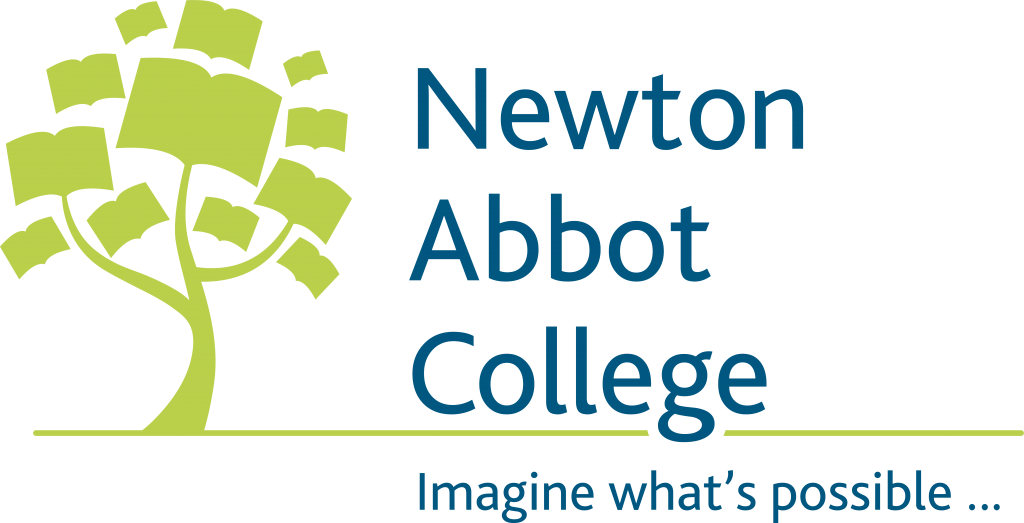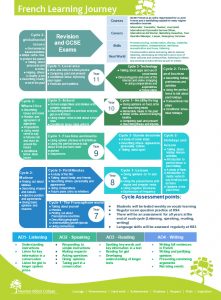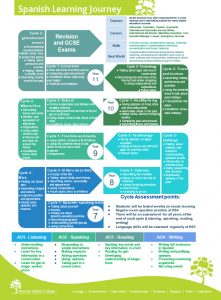Intent
As a department, the aim of our curriculum is to support our students in becoming confident communicators and to develop an appreciation of other cultures, particularly in a local area where cultural diversity is less apparent than the average national experience in the UK. We aim to stretch and challenge our talented linguists whilst inspiring all students to want to interact with, and be respectful of, people from all corners of the world, wherever life may take them.
We want our students to appreciate that in order to experience other countries and cultures to the fullest, speaking solely English is not ‘enough’ and being able to converse in another language seeks to increase their opportunities and fulfilment in future life.
Subsequently, our aim is to develop intrinsic motivation within our students; we want them to want to learn and develop the skills which will allow them to communicate in more than English. We also want them to ‘learn to be a linguist’, honing their understanding of their native language and supporting literacy across the college.




